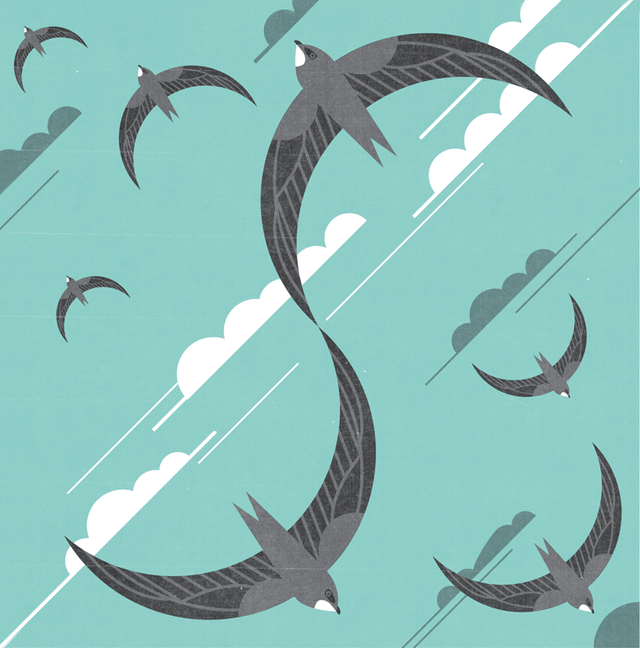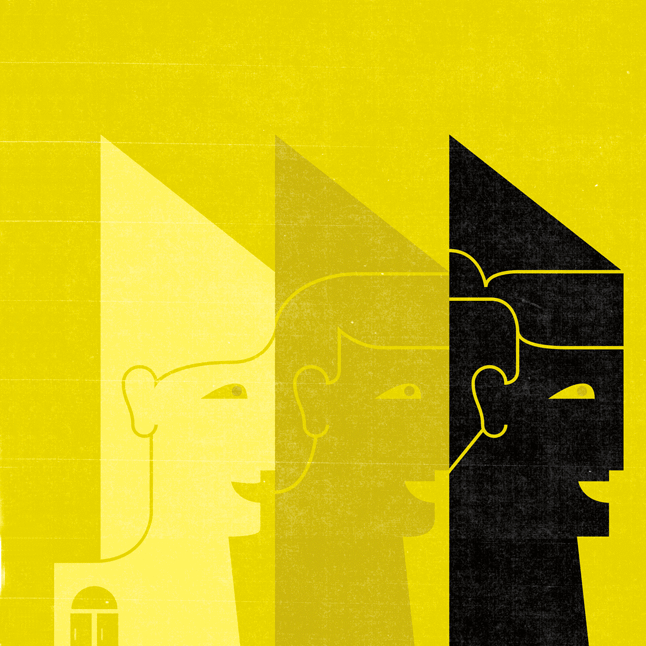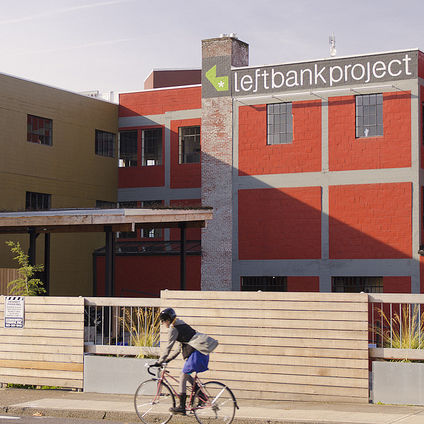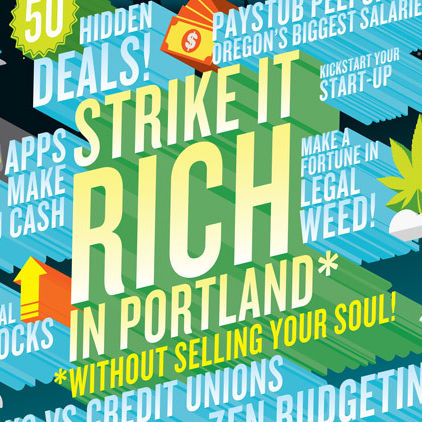Financial Lessons From the Chapman Swifts

Image: Matthew Hollister
One evening last September, while picnicking with hundreds of people in a schoolyard in Northwest Portland, the renowned Chapman swifts got me thinking about money.
To be fair, I may have already been thinking about money. For almost five years, I’ve been reporting on money’s past, present, and future. I wrote a book examining the rapid disappearance of physical cash, which stirred up lot of discussion (and more than a little ire). I’ve interviewed counterfeiters, central bankers, Bitcoin faithful, and even a member of Abba, who wants to see his home country of Sweden ditch paper money.
Anyway, the swifts. In late summer, the northern birds head for Mexico and Central America. For a brief time en route, they are Portlanders, and thousands make their way to Chapman Elementary at dusk after spending the day gorging on insects. As sunset approaches, circling birds crowd the sky. Suddenly they switch from solo flight paths to flying in a swarm, darting, swooping, and banking as one. The vortex narrows into a funnel as the birds nose-dive into the school’s chimney, a disappearing black blur. The birds roost inside for the night, keeping each other warm.
In Portland, a destination for so many who want to eschew the financial fixations of places like San Francisco and New York, people often have a reticent relationship with money. It’s a necessary evil to be kept at arm’s length. But that’s a narrow view, and money’s similarity to that beautiful swarm of birds offers clues as to why.
As the famed German philosopher Georg Simmel once put it, when money stops moving it ceases to possess many attributes that define it. Although money is officially a noun, it can masquerade convincingly as a verb, greasing transactions, enabling investments, facilitating trade, storing value, enabling choice, and zooming this way and that, like the swarm.
And like the swifts’ nightly ballet above Chapman, money is about working together. If you bristle at the notion that money promotes cooperation, that’s only because you’re hung up on greed, inequity, taxes, crime, and so forth. But those are unseemly behaviors and ugly aspects of modern society. They are not the fault of money itself, any more than shoddy construction can be blamed on a hammer.
On the contrary, the technology known as money gives us shared purpose, like birds flying and roosting together. Money—or more specifically, a monetary system—doesn’t work without a shared faith in it and in each other. A dollar has no intrinsic value, just like a handshake has no actual worth. Yet every time we buy or sell something, we trust that others will accept money as valuable. That nanosecond of faith and interdependence enables trillions of transactions a day and makes civilization as we know it possible.
Of course, the system is hardly flawless. But the vast majority of humanity has by now determined that the benefits of participating in money outweigh the costs of going it alone, at least until someone comes up with something better. The same is true for the swifts. Roosting together puts each individual at greater risk of contracting disease. Hawks occasionally ambush the swarm to pick off a meal. But the system is crucial for warmth and perhaps serves other benefits as well. On balance, participation is advantageous.
Money’s advantages are also expanding, as innovators come up with ways to make it work better for more people. The friction of transactions (read: cost to you) is shrinking, and new tech companies are challenging old-school banks and credit models. Portlanders are playing their role. Local banking start-up Simple, for instance, was designed for the online world and founded on the belief that—gasp—misleading customers is not good for business. For those who can’t afford a bank account, Mercy Corps has been developing tools that deliver digital money to disaster victims, so that they can avoid the liabilities of cash and more quickly get back on their feet.
And no matter how rabid a person’s individual-liberty take on the world, money is still about collective benefit. When most people say they want more money, they really mean they want increased well-
being. Nothing can guarantee that, but like it or not, money can help secure it. Remember, though, that money’s value withers without others’ trust. When too many citizens’ prosperity is damaged by political and economic dysfunction, confidence in the currency can plummet, obliterating the value of money in hand. Everyone in the swarm has a stake in the welfare of everyone else.
No, money isn’t uncouth, and thinking about it doesn’t undermine some enlightened sensibility. On the contrary, money is a marvel: a civilization-powering tool that connects us in our search for a stable perch and a more prosperous tomorrow.
David Wolman is a contributing editor at Wired and the author, most recently, of The End of Money.


















